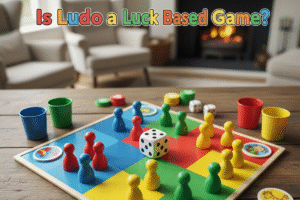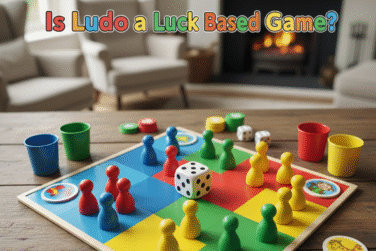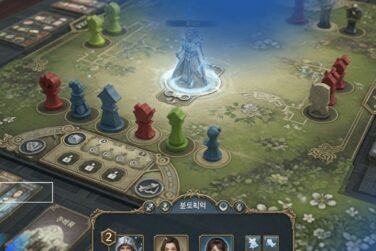Board games have long been a beloved source of entertainment and social connection. Whether it’s gathering around the table for family fun or engaging in intense competitive matches, board games offer a diverse array of experiences that cater to all ages and interests. From timeless classics to innovative modern designs, understanding the different types of board games and board game categories helps players find the perfect fit for their preferences. In this comprehensive guide, we’ll explore different types of board games, their gameplay styles, and tips to choose the right game to enhance your collection and game nights.
Table of Contents
Understanding the Main Categories of Board Games
Board games come in many styles, each offering unique mechanics and appeals. Here’s an overview of some of the different types of board games, with explanations of what makes each category special:
1. Children’s Board Games
These games are designed to be simple and accessible, often emphasizing luck and basic strategy to suit younger players. Examples include Ludo, where players race tokens based on dice rolls, and Snakes & Ladders, which relies purely on chance with ladders and snakes affecting player progress. Candy Land is another classic that introduces preschoolers to board gaming with color-coded movement and no reading required. These games foster early cognitive skills and family bonding.
2. Strategic Board Games
This category involves games requiring planning, critical thinking, and long-term tactics. Chess is the quintessential strategic game, pitting two players in an intellectual battle of wits and foresight. Other games like Carcassonne focus on tile placement and territory control, demanding players to think several moves ahead. Ticket to Ride blends accessible mechanics with strategic route-building, making it a favorite for both casual and serious gamers.
3. Educational Board Games
Games that promote learning while entertaining fall under this category. Scrabble is a classic educational game that improves vocabulary and spelling through word formation. Puzzle board games also fit here, sharpening logic and problem-solving skills. These games are perfect for players looking to combine fun with cognitive development.
4. Economic Board Games
In economic games, players manage resources, money, or assets to outsmart competitors. Monopoly is the iconic example where buying and trading real estate leads to financial dominance. Games like Power Grid and Acquire require players to balance budgets, invest wisely, and navigate market forces. These games appeal to fans of negotiation, risk management, and strategic resource allocation.
5. Complex Board Games
These are often deeper, longer games with intricate rules and layered strategy. Titles like Risk, a global conquest game involving armies and dice battles, provide immersive challenges for serious gamers. Complex board games frequently include multiple mechanics, requiring focus and experience to master.
6. Cooperative Board Games
Unlike competitive games, cooperative titles have players working together toward a shared goal. Pandemic is a standout, tasking players with stopping global disease outbreaks through teamwork and strategic planning. Cooperative games foster communication, collaboration, and shared victory, offering a refreshing change from cutthroat competition.
7. Mystery Board Games
These games focus on deduction and storytelling, inviting players to solve puzzles or crimes. Clue (Cluedo) is a classic mystery game where players gather clues to identify the murderer, weapon, and location. Such games blend logic, suspense, and narrative, making them ideal for groups that love intrigue and problem-solving.
8. Abstract Strategy Games
Abstract games strip away thematic elements to focus on pure strategy. Games like Go and Hive offer elegant, minimalist gameplay emphasizing tactical thinking and foresight. These games usually have simple rules but immense depth, attracting players who appreciate intellectual challenge without randomness.
9. Area Control Games
Area control games revolve around competing for dominance over specific board regions. El Grande and Small World task players with placing units or influence markers to claim territories and score points. Tactical positioning, timing, and sometimes conflict are key, making these games popular among fans of territorial strategy.
10. Deck-Building Games
In deck-building games like Dominion and Clank!, players customize their card decks during play to improve their actions and strategies. Starting with basic cards, players acquire more powerful ones to create efficient combos and tactics. The evolving nature of decks offers endless strategic possibilities and replay value.
11. Deduction and Social Deduction Games
Deduction games such as Sherlock Holmes: Consulting Detective challenge players to solve mysteries by piecing together clues logically. Social deduction games like Werewolf and The Resistance rely on bluffing and reading opponents to discover hidden roles. These games emphasize critical thinking, social interaction, and deception, creating thrilling gameplay experiences.
Heres is the Summary Table of Different Types of Board Games Categories
| Category | Example Games | Number of Players | Key Features |
| Children’s Board Games | Ludo, Snakes & Ladders, Candy Land | 2-4 | Simple rules, luck-based |
| Strategic Board Games | Chess, Carcassonne, Ticket to Ride | 2-5 | Planning, foresight, tactical decision |
| Educational Board Games | Scrabble, Puzzle games | 2-4 | Learning focus, vocabulary, logic |
| Economic Board Games | Monopoly, Power Grid, Acquire | 2-6 | Resource management, negotiation |
| Complex Board Games | Risk, Twilight Imperium | 2-6 | Deep rules, multi-layered strategy |
| Cooperative Board Games | Pandemic, Forbidden Island | 2-4 | Teamwork, shared goals |
| Mystery Board Games | Clue (Cluedo), Mysterium | 3-6 | Deduction, narrative |
| Abstract Strategy Games | Go, Hive | 2 | Minimalist, pure strategy |
| Area Control Games | El Grande, Small World | 2-5 | Territory dominance, tactical placement |
| Deck-Building Games | Dominion, Clank! | 2-4 | Card acquisition, evolving strategy |
| Deduction/Social Deduction | Sherlock Holmes, Werewolf | 4-10+ | Logical inference, bluffing, social play |
The Rise of Modern Board Games vs. Classic Ones
The landscape of board gaming has dramatically evolved. While classic different types of board games like Chess, Monopoly, and Scrabble remain beloved staples, modern titles have redefined what board games can be. The rise of innovative mechanics, cooperative play, immersive storytelling, and elegant design has expanded the hobby’s appeal.
Crowdfunding platforms have fueled the growth of independent designers, leading to an explosion of diverse and thematic board game categories. Games like Pandemic (cooperative) and Gloomhaven (adventure) introduce narrative depth and player-driven campaigns that contrast with the luck-driven or purely competitive classic games. This evolution offers players richer experiences, whether they seek strategic depth, social interaction, or collaborative fun.
Benefits of Playing Board Games Regularly
Playing board games regularly is not just enjoyable—it’s beneficial in many ways:
- Cognitive Development: Many strategic board games and complex board games enhance critical thinking, memory, and problem-solving.
- Social Skills: Games promote communication, teamwork (especially in cooperative board games), and healthy competition.
- Stress Reduction: Immersive gameplay provides relaxation and a break from daily routines.
- Educational Value: Educational board games like Scrabble improve language skills, while puzzle games boost logical reasoning.
- Creativity and Imagination: Narrative-driven and mystery board games encourage storytelling and creative thinking.
Board games combine fun with mental and emotional benefits, making them a fantastic hobby for all ages.
At TheGamingTales, we offer expert insights and comprehensive information on different types of board games, card games, puzzle games, and racing games—everything you need to level up your play and stay ahead in the gaming world.
How to Choose the Right Board Game for Your Group
With so many different types of board games available, selecting the right one can be overwhelming. Here are tips to find the perfect fit:
- Consider Player Age: Younger players enjoy children’s board games with simple rules; adults often prefer more complex or thematic games.
- Group Size Matters: Some games are ideal for two players (Chess, Go), while others cater to larger groups (Werewolf, Monopoly).
- Time Commitment: Quick games work well for casual sessions; longer, complex games suit dedicated game nights.
- Gameplay Preferences: Decide if your group prefers competition, cooperation, deduction, or storytelling.
- Complexity Level: Beginners may want straightforward games, while experienced gamers often seek complex board games.
Matching the game to your group’s interests ensures an enjoyable and engaging experience.
Must-Have Board Games for Every Collection
A well-rounded collection covers diverse board game categories and offers something for every occasion:
- Chess (Strategic)
- Scrabble (Educational)
- Monopoly (Economic)
- Pandemic (Cooperative)
- Catan (Resource management and strategy)
- Clue (Mystery)
- Ticket to Ride (Strategic and accessible)
- Risk (Complex and conquest-based)
- Ludo & Snakes & Ladders (Children’s classics)
- Dominion (Deck-building)
These titles represent a spectrum of gameplay styles, ensuring you have options for any mood or group.
Ready to Play Your Favorite Board Game in 2025?
Board games continue to evolve, offering endless fun across different board game types. Whether you’re exploring strategic board games, diving into mystery board games, or enjoying lighthearted children’s board games, there’s something for everyone. Ready to expand your collection? It’s time to buy different types of board games and discover new favorites that will bring joy, challenge, and connection to your game nights!



























